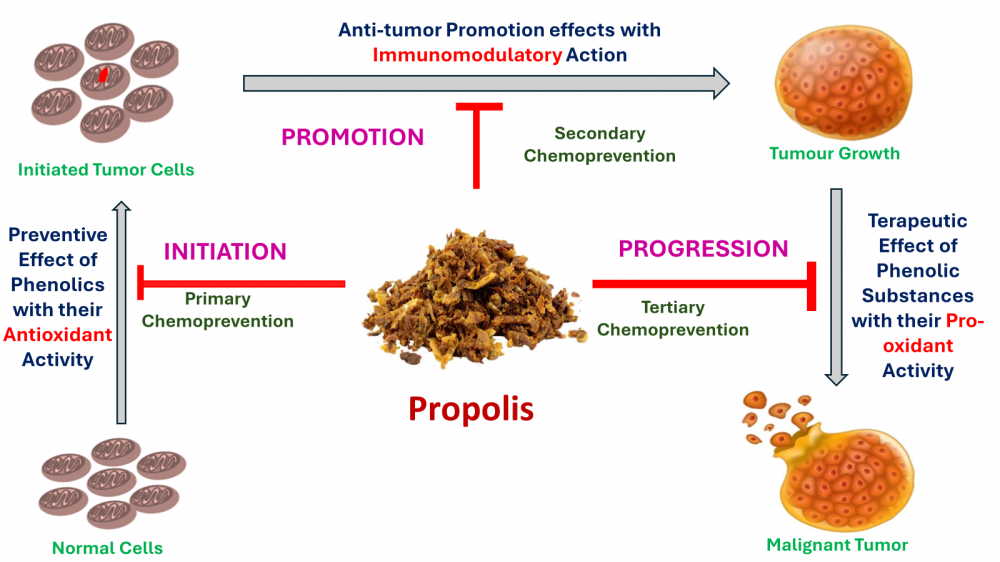JOURNAL 3127
Records of Agricultural and Food Chemistry
Year: 2024 Issue: 3 Special Issue: Abstracts 3rd. TCS, International Food Chemistry Congress February 29-March 03,2024 Antalya Türkiye
p.42 - 42
Viewed 1427 times.
GRAPHICAL ABSTRACT

ABSTRACT
Cancer is a deadly disease caused by the uncontrolled proliferation of abnormal cells in a part of the body. Although conventional methods such as surgery, radiotherapy, chemotherapy and targeted therapies are widely used in cancer treatment, the search for alternative methods continues due to inadequate treatment and serious side effects. Chemoprevention is an approach with great potential in controlling the incidence of cancer. Chemoprevention works in different ways to stop, delay, and control cancer incidence and progression [1]. Research showed that most cancers can be prevented, treated, or the incidence can be delayed. Some natural products were reported to reduce various risk factors associated with different types of cancer through their chemo preventive role. Propolis, a natural substance produced by honeybees (Apis mellifera L.), has been widely used for therapeutic abilities such as antioxidant anti-inflammatory, immunomodulatory and antimicrobial in Traditional Medicine [2]. Although the composition of propolis is closely related to its botanical origin, processing, and environmental conditions, it contains many types of bioactive phenolic compounds [3]. Many studies have shown that the phenolic and flavonoid components of propolis are mainly responsible for their biological activities [4]. Numerous in vitro and in vivo studies have shown that different types of propolis and their phenolic compounds can also be used in the prevention and treatment of cancer. Because the hydroxyl groups of phenolic compounds can neutralize free radicals by donating electrons, they also show a dose-dependent pro-oxidant effect in the presence of transition metals such as free iron and copper due to the Fenton reaction [5]. For this reason, low doses of phenolic compounds contained in propolis can be used as prevention of cancer with their antioxidant effects, while high doses can be used as therapeutic agents with their pro-oxidant effects. Propolis can also inhibit the promotion of cancer with its immunomodulatory activity [6]. Herein, the mechanism of those effects of propolis will be discussed in the light of the studies carried out by our group.
KEYWORDS- Propolis
- phenolic compound
- cancer
- chemoprevention